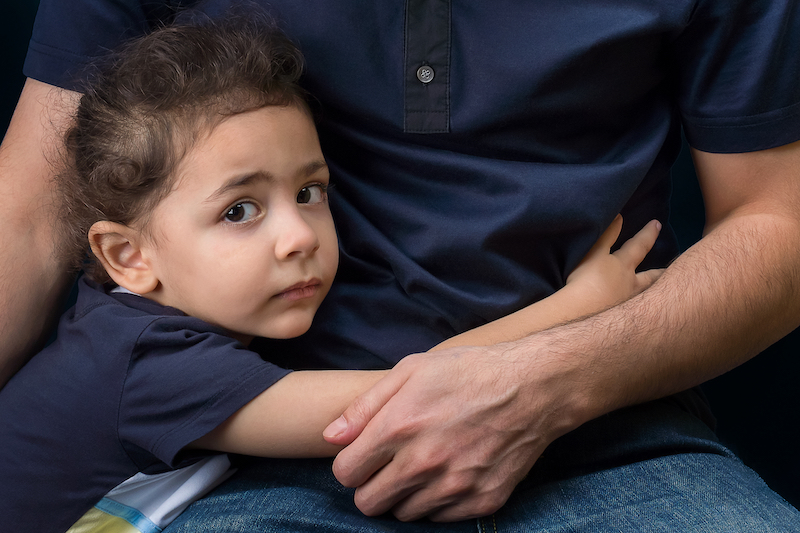Can a Child Choose Which Parent to Live With in Arizona?

In Arizona, the wishes of a child regarding which parent to live with are considered, but the child cannot make the final decision. The court takes various factors into account, including the child’s age and maturity, before making a determination.
Legal statutes in Arizona prioritize the child’s best interests when deciding custody arrangements. Parents often wonder about the influence their child’s preference holds, hoping it might sway the outcome in their favor.
Parents facing custody decisions should consult experienced legal professionals. At The Law Office of Cosmas Onyia, expertise in family law ensures informed guidance through these complex matters.
Understanding Child Custody in Arizona
Child custody in Arizona involves legal considerations and specific types of custody arrangements that determine the living and decision-making situations for the child.
Legal Framework
Arizona’s child custody laws prioritize the best interests of the child. Courts evaluate several factors to determine what arrangement will serve the child’s needs. These factors include the child’s physical and emotional well-being, the parents’ mental and physical health, and the child’s relationships with each parent.
Courts also consider the child’s adjustment to home, school, and community, and any history of domestic violence or substance abuse. Parents can seek assistance with child custody laws to help navigate the complexities of the legal process.
Arizona allows both parents to share legal decision-making unless it is not in the best interests of the child. This shared responsibility includes decisions about education, healthcare, and religious upbringing. Parental agreements can significantly impact the court’s decision, especially if the arrangement works toward the child’s best interests.
Types of Custody
There are two primary types of custody in Arizona: legal custody and physical custody. Legal custody pertains to the right to make major decisions about the child’s life, such as schooling and medical care. Physical custody involves the living arrangement of the child.
Joint legal custody means both parents share decision-making responsibilities, while sole legal custody places this responsibility with one parent. For physical custody, joint arrangements mean the child spends significant time with both parents. Sole physical custody means the child resides primarily with one parent and the other may have visitation rights.
Parents may have different rights and responsibilities based on the specific custody arrangement. The court aims to ensure the arrangement fosters the child’s best interests, regardless of the type of custody awarded.
Factors Influencing Child’s Choice of Residence
When determining a child’s residence in Arizona, the court considers both the child’s preference and various other factors to ensure the child’s best interests are met.
Child’s Preference
In Arizona, a child’s preference can be a significant factor in custody decisions. The court typically listens to the child’s wishes if the child is of sufficient age and maturity. There is no specific age defined by Arizona law when a child can choose which parent to live with.
Judges evaluate whether the child understands the consequences of their choice and if the preference is genuine or influenced by any parent. The input of a child can be compelling but is balanced against other key factors to ensure it aligns with the child’s best interests.
Court Considerations
The court examines a comprehensive set of factors beyond the child’s stated preference. These include the child’s emotional and physical needs, the stability of each parent’s home environment, and the relationships the child has with each parent.
Arizona courts also scrutinize each parent’s ability to provide for the child’s well-being, including education and healthcare. Any history of domestic violence or substance abuse is a critical factor.
The paramount concern of the court is always the best interest of the child, ensuring a nurturing and supportive living arrangement.

The Role of Legal Assistance
In Arizona custody cases, legal assistance is crucial to navigate complex agreements and represent parents effectively in disputes.
Navigating Child Custody Agreements
Legal assistance helps parents understand their rights and responsibilities, particularly within the constraints of Arizona law. Attorneys can draft clear and fair custody agreements, ensuring all preferences and concerns are addressed. A divorce agreement lawyer plays a pivotal role in managing sensitive discussions and facilitating negotiations, which prevents potential conflicts.
Legal experts also guide parents through the legal paperwork, helping them adhere to deadlines and procedural requirements. This minimizes errors and ensures that all documents are properly submitted. Lawyers can also offer valuable advice on how to approach shared parenting plans and handle modifications if circumstances change.
Representation in Custody Disputes
In contentious custody battles, having legal representation becomes even more essential. Attorneys advocate for their client’s interests and present compelling cases in court. They can present evidence effectively and cross-examine witnesses to strengthen their client’s position.
A strong legal team can also negotiate intensely contested matters, aiming to reach an agreement without prolonged court proceedings. They help parents prepare for court appearances, ensuring they are informed and confident. Legal representation aims to protect the client’s rights and strive for an outcome in the child’s best interest.
Mediation and Alternative Dispute Resolution
In addition to traditional litigation, mediation and alternative dispute resolution (ADR) methods are increasingly utilized in Arizona to resolve child custody disputes. These approaches offer a less adversarial and more cooperative environment for parents to reach mutually beneficial agreements.
Mediation involves a neutral third-party mediator who facilitates discussions between parents to help them arrive at a consensus regarding custody arrangements. The mediator does not make decisions but guides the conversation to ensure both parties’ concerns and preferences are heard. This process can be less stressful and more cost-effective than going to court and it often results in more amicable agreements that are in the child’s best interest.
Collaborative law is another ADR method where both parents and their attorneys commit to resolving disputes outside of court. This approach focuses on open communication, problem-solving, and negotiation, with the shared goal of reaching a custody agreement that benefits the child. Collaborative law can be particularly effective in maintaining a positive co-parenting relationship post-divorce.
The Importance of a Child-Centered Approach
Regardless of the method chosen to resolve custody disputes, maintaining a child-centered approach is paramount. This means prioritizing the child’s emotional, psychological, and physical well-being above all else. Parents are encouraged to set aside personal grievances and focus on creating a stable, loving environment for their child.
Children often experience significant stress and anxiety during custody battles. Ensuring they feel heard and valued can mitigate some of these negative effects. Open communication with the child, age-appropriate explanations of the situation, and reassurance of both parents’ love and commitment are essential.
Conclusion
Child custody decisions in Arizona are complex and multifaceted, requiring careful consideration of numerous factors to ensure the child’s best interests are met. While a child’s preference is an important element, it is one of many that the court evaluates. Legal guidance from experienced professionals, such as those from The Law Office of Cosmas Onyia, can provide invaluable support in navigating these challenging decisions.
Parents facing custody disputes are encouraged to seek legal advice early in the process. Whether through traditional litigation, mediation, or collaborative law, the objective remains the same: to secure a custody arrangement that fosters the child’s overall well-being and development. By focusing on the child’s needs and maintaining a cooperative approach, parents can work towards a resolution that benefits everyone involved.

